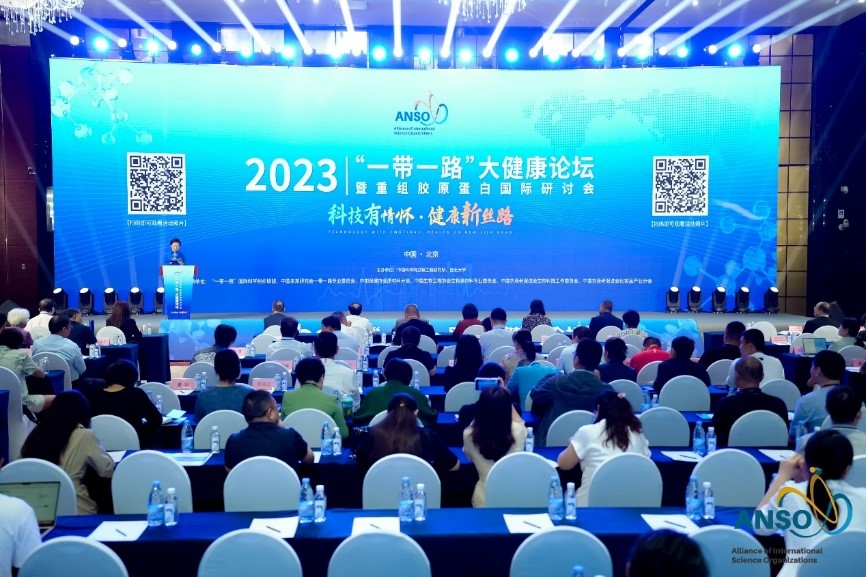A research laboratory using advanced imaging techniques and computational analysis to understand brain behaviour is being established as a joint initiative between The University of Queensland (UQ) and The Institute of Automation at the Chinese Academy of Sciences (CASIA).
Researchers from UQ's Queensland Brain Institute (QBI) and CASIA will work in partnership at the Sino-Australian Laboratory of Brainnetome to map brain behaviour and develop a greater understanding of how neural networks function in both diseased and normal states.
Professor Tianzi Jiang, a neuroimaging researcher who has a joint appointment with UQ and CASIA, will oversee the development of the new laboratory.
"Both the institutes share common interests in using neuroimaging techniques to understand brain networks and have complementary expertise and facilities in the field,” Professor Jiang said.
"We believe that collaborative research and scientific exchange through the establishment of a joint research laboratory will be mutually beneficial for both UQ and CASIA.”
Five researchers from UQ, and 12 researchers and 20 PhD students from CASIA will collaborate on research both in China and at QBI at UQ's St Lucia campus in Brisbane, Australia.
Queensland Brain Institute Director Professor Perry Bartlett said he was confident the partnership with such a high-quality institute in China would deliver exciting outcomes.
"Using the advanced technology at CASIA neuroimaging to track brain behaviour when performing tasks provides invaluable insight into brain behavior,” he said.
"This not only helps us to understand how a healthy brain works, but it also provides insight into the wiring changes that occur in a diseased brain.”
The findings will be used to develop computational models to diagnose changes in brain wiring associated with diseases.
Computational analysis and neuroimaging will also be applied to other areas of research at QBI, such as learning and memory.
"This approach will be used in our Science of Learning Centre to understand the networks involved during learning and the formation of memories and applied to deliver more effective education models in schools and universities,” Professor Bartlett said.
This week, UQ's Vice-Chancellor Professor Peter H?j will meet with senior leaders from CAS as part of a one-week visit to China.
The Sino-Australian Laboratory of Brainnetome adds to the collaborative portfolio between UQ and CAS. Other joint UQ-CAS initiatives include the Joint Laboratory of Neuroscience and Cognition with the Institute of Biophysics, which is dedicated to providing solutions to overcome disorders of the brain by improving the function of nerve cells. (The University of Queensland)
Researchers from UQ's Queensland Brain Institute (QBI) and CASIA will work in partnership at the Sino-Australian Laboratory of Brainnetome to map brain behaviour and develop a greater understanding of how neural networks function in both diseased and normal states.
Professor Tianzi Jiang, a neuroimaging researcher who has a joint appointment with UQ and CASIA, will oversee the development of the new laboratory.
"Both the institutes share common interests in using neuroimaging techniques to understand brain networks and have complementary expertise and facilities in the field,” Professor Jiang said.
"We believe that collaborative research and scientific exchange through the establishment of a joint research laboratory will be mutually beneficial for both UQ and CASIA.”
Five researchers from UQ, and 12 researchers and 20 PhD students from CASIA will collaborate on research both in China and at QBI at UQ's St Lucia campus in Brisbane, Australia.
Queensland Brain Institute Director Professor Perry Bartlett said he was confident the partnership with such a high-quality institute in China would deliver exciting outcomes.
"Using the advanced technology at CASIA neuroimaging to track brain behaviour when performing tasks provides invaluable insight into brain behavior,” he said.
"This not only helps us to understand how a healthy brain works, but it also provides insight into the wiring changes that occur in a diseased brain.”
The findings will be used to develop computational models to diagnose changes in brain wiring associated with diseases.
Computational analysis and neuroimaging will also be applied to other areas of research at QBI, such as learning and memory.
"This approach will be used in our Science of Learning Centre to understand the networks involved during learning and the formation of memories and applied to deliver more effective education models in schools and universities,” Professor Bartlett said.
This week, UQ's Vice-Chancellor Professor Peter H?j will meet with senior leaders from CAS as part of a one-week visit to China.
The Sino-Australian Laboratory of Brainnetome adds to the collaborative portfolio between UQ and CAS. Other joint UQ-CAS initiatives include the Joint Laboratory of Neuroscience and Cognition with the Institute of Biophysics, which is dedicated to providing solutions to overcome disorders of the brain by improving the function of nerve cells. (The University of Queensland)
 Search
Search




 京公网安备110402500047号
京公网安备110402500047号